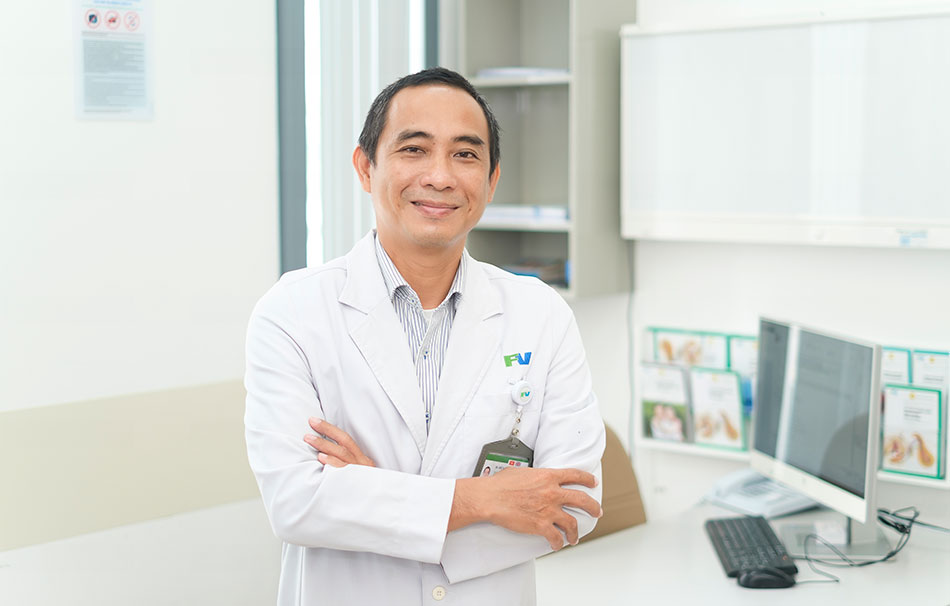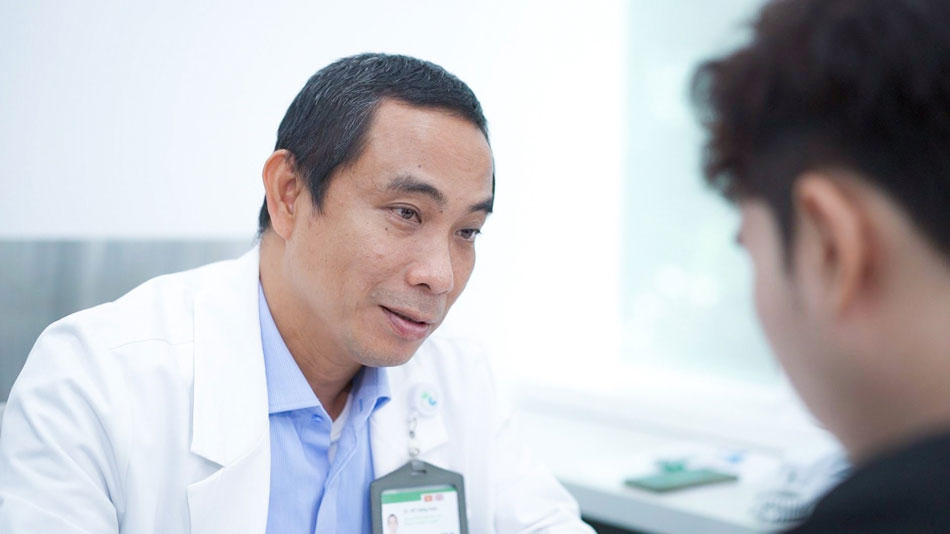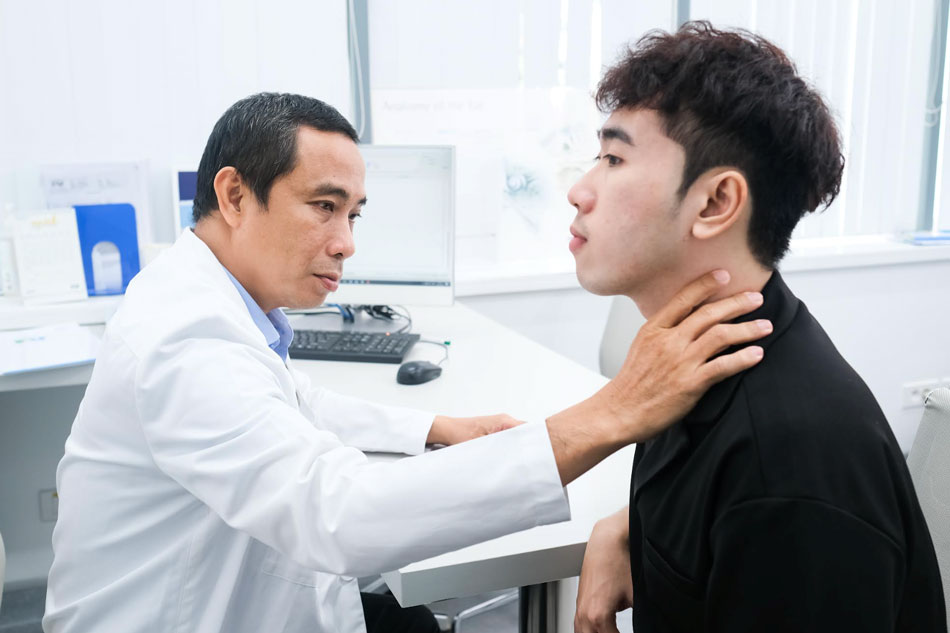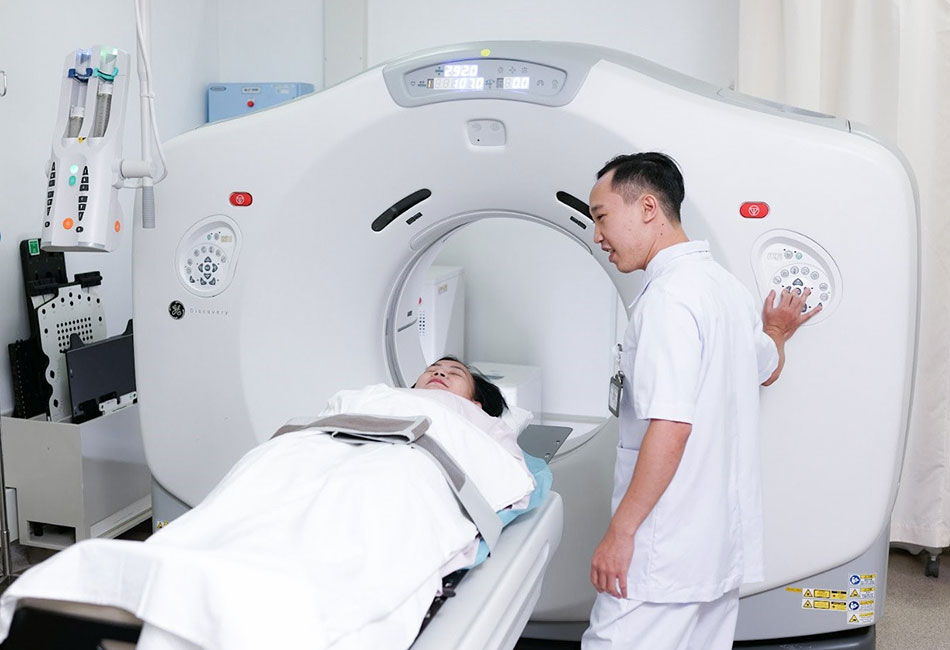Cancer is often equated to a death sentence for many patients, but Dr Do Tuong Huan, an expert on head and neck cancer surgery, is determined that this not be the case. Dr Huan always strives to find the optimal treatment for every patient to help them to overcome the disease.

Dr Do Tuong Huan has 20 years of experience in complex head and neck cancer surgery
Head and neck cancer surgery: It is necessary to focus on both function and aesthetics for the patient
Dr Do Tuong Huan graduated from the University of Medicine and Pharmacy in Ho Chi Minh City in 1998. He has more than 20 years of experience within the specialty of head and neck cancer surgery and has personally treated thousands of cases.
While still working at the Ho Chi Minh City Oncology Hospital, the young doctor saw cancer patients suffering with severe, painful sequelae daily. These experiences motivated him to always try to learn and improve his skills, seek the best surgical methods, limit complications, and improve aesthetic outcomes for his patients.
Dr Huan says: “Head and neck surgery is a challenging field because of its relatively complex anatomical structure. In particular, the biggest challenge in the treatment of head and neck cancers is that in addition to trying to cure the disease, it must also ensure the aesthetics and function of the head and neck area and help patients integrate well into life after treatment.”
Due to the passion for this field, Dr Huan always takes advantage of opportunities to learn and deepen his expertise in the field of head and neck cancer surgery. He said that as a cancer surgeon, in addition to key operating skills, it is necessary to have an ability to empathise with and understand patients as almost everyone becomes desperate and depressed when they learn that they have cancer. He always tries to spend as much time as possible counselling and encouraging patients to support them in their fight against the disease.
In October 2022, Dr Huan officially joined FV Hospital’s Otorhinolaryngology (ORL Or ENT) team with the title Head and Neck Cancer Surgeon.

Dr Huan examines a patient at FV Hospital
Dr Huan says that he chose FV Hospital as it offered the best opportunity to continue to develop his career. FV Hospital is staffed by excellent doctors, is equipped with an excellent operating room and has invested heavily in a sophisticated oncology department, Hy Vong Cancer Care Centre, which offers world-class cancer treatment capabilities, including external radiation therapy, radiotherapy with radioisotopes, and pathology accompanied by cryosurgery. Moreover, FV Hospital is an international-standard general hospital with a full range of specialties and so is able to offer multispecialty care, creating greater convenience for the patient.
Dr Huan says: “I, like my colleagues in the oncology industry, want to devise the optimal treatment protocol for each patient, taking full advantage of these modern facilities and offering the highest quality of treatment possible. There is no greater joy than seeing your patient recover from cancer and confidently and optimistically return to their lives. Their smiles with their family and friends after each successful surgery is the motivation for us to always try to improve our expertise and improve the quality of each surgery.”
Dr Huan hopes that he will make a strong contribution to this department as it continues to be known as a reliable address for domestic and foreign patients when seeking oncological care, especially with regard to head and neck cancer. His goal is not only to cure the patient, but also to ensure they benefit from optimal aesthetic and functional factors after treatment.
Experienced specialist in thyroid cancer treatment
Dr Huan explains that the most common head and neck cancers include cancers of the thyroid gland, parotid and submandibular salivary glands, and head and neck skin cancer. Among them, thyroid cancer is the most common, particularly among middle-aged people (those aged 45 to 50 years old), but sometimes it can occur in young people, even those aged 10 to 14 years old.
Thyroid cancer has a high cure rate: the five-year prognosis for well-differentiated thyroid cancer is 98 to 99 per cent; the 10-year chance of complete remission is above 90 per cent. He said: “It is common to confuse benign and malignant goiters. However, thyroid nodules are benign in most cases, so patients should not be too worried if they detect thyroid nodules.”

Dr Huan said that it is easy to confuse a benign thyroid goiter with a malignant goiter
When detecting a thyroid goiter, the patient should visit a medical facility or an oncologist unit for examination. The patient will be biopsied for a more thorough diagnosis; if the tumour is malignant, the patient will undergo surgery. If the tumour is small, doctors will consider partially resecting the gland. If detected late, the entire thyroid gland must be removed. In its late stages, a tumour may have spread in the neck area and invaded other organs, causing hoarseness, difficulty breathing, and swollen lymph nodes in the neck.
Dr Huan shared: “What thyroid cancer surgeons are most worried about are complications after surgery, especially those affecting the voice as surgery can affect the nerve fibres that control speech. These nerve fibres are often very small and difficult to see with the naked eye, so doctors must be cvery areful during surgery. In addition, there is a risk of affecting the parathyroid gland, which regulates calcium in the blood. Avoiding affecting these parathyroid glands is also a difficult problem for surgeons and it requires the surgical process to be meticulous.”
At FV Hospital, cancer patients can receive combined treatment via many methods at the same location via interspecialty coordination, including at Hy Vong Cancer Care Centre, which is fully equipped and offers the most advanced cancer treatment techniques. Doctors will consult to develop individualised treatment methods for each patient, perhaps inclusive of surgery, I-131 radiation, or endocrine therapy, to ensure optimal treatment efficiency and reduce complications to help to ensure patients enjoy a high quality of life after treatment.

FV Hospital’s Hy Vong Cancer Care Centre specialises in oncology care
To help to prevent diseases of the thyroid, Dr Huan says “We need to build a balanced diet with not too much or too little iodine. A blood test can be conducted to determine whether the body has any deficiencies, however, this method is rarely prescribed. A general note is that city dwellers who have a full and varied diet are usually not be deficient in iodine. In contrast, people in remote and inaccessible areas are at risk of iodine deficiency and need more supplementation.”
To make an appointment with Dr Do Tuong Huan, Department of Otorhinolaryngology (ORL or ENT), please contact: (028) 54 11 33 33, extension 7711.

 Vi
Vi 












